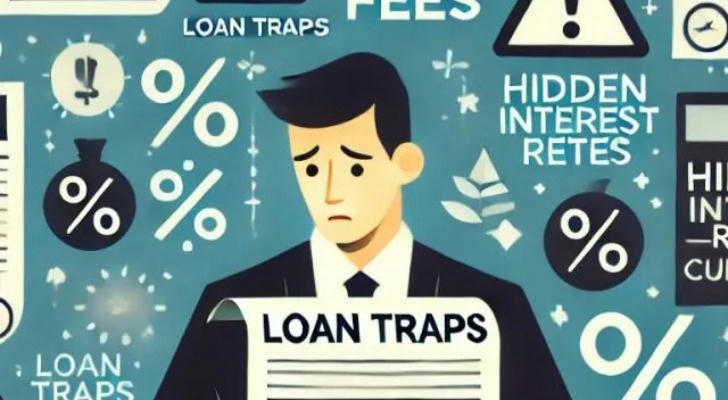Avoiding Loan Scams: Identifying and Evading Common Loan Frauds in the United States

In the United States, the world of loans can be a minefield of potential scams. With the rise of online lending, fraudulent activities have become more sophisticated, making it crucial for borrowers to be vigilant. This article aims to equip you with the knowledge to identify and avoid common loan scams, ensuring a safer financial journey.
Understanding Loan Scams Loan scams are fraudulent schemes where criminals pose as legitimate lenders to deceive borrowers into paying upfront fees or providing sensitive personal information. These scams can take various forms, from phishing emails to sophisticated websites mimicking real financial institutions.
Common Types of Loan Scams
1. Advance-Fee Loans The most prevalent scam, advance-fee loans, involves骗子 asking for fees upfront for processing, insurance, or other costs. Legitimate lenders do not require upfront fees, making this a red flag.
2. Phishing Scams Phishing scams involve emails or messages from fake lenders asking for personal information under the guise of processing a loan. These emails often contain links to fraudulent websites designed to steal your data.
3. Too-Good-To-Be-True Offers Promises of extremely low-interest rates or instant approval without a credit check are often too good to be true. These offers lure borrowers in with the promise of easy money, only to reveal hidden fees or no loan at all.
4. Fake Check Scams In this scam, the fraudster sends a borrower a check for more than the loan amount, asking the borrower to deposit it and wire back the difference. The check turns out to be fake, leaving the borrower responsible for the wired funds.

How to Protect Yourself
1. Research Lenders Thoroughly Before engaging with any lender, verify their legitimacy through the Better Business Bureau, state regulators, or online reviews. Check if they have a physical address and a history of successful loans.
2. Be Wary of Unsolicited Offers If a loan offer comes unsolicited, especially via email or phone, be skeptical. Legitimate lenders typically do not reach out to potential customers in this manner.
3. Secure Your Personal Information Never provide personal or financial information unless you are certain of the lender's legitimacy. Use secure websites (https) and avoid sharing sensitive data over email or unsecured messaging apps.
4. Understand the Terms Always read the loan agreement carefully. If terms are unclear or seem unreasonable, it's a sign to walk away. Legitimate lenders will be transparent about fees and interest rates.
5. Trust Your Instincts If something feels off about a loan offer, trust your gut. It's better to be cautious than to fall victim to a scam.

Case Study: The Advance-Fee Loan Scam
Background: John, a resident of California, was in urgent need of funds to cover unexpected medical expenses. Desperate, he searched online for a quick loan and came across a website offering low-interest, no-credit-check loans.
Incident: The website asked John to pay a $500 processing fee to secure the loan. Promising a quick approval, the website seemed legitimate, and John, in his haste, transferred the money. Days later, with no loan disbursed, John tried contacting the company, only to find their website had disappeared, and the contact numbers were disconnected.
Resolution: Realizing he had fallen for an advance-fee loan scam, John reported the incident to the Federal Trade Commission (FTC) and filed a complaint with his local police. He learned a hard lesson about the importance of verifying lenders and not paying upfront fees for loans.
Conclusion Loan scams are a significant threat in the financial landscape of the United States. By understanding the common types of scams and taking proactive steps to protect yourself, you can avoid becoming a victim. Remember, if a loan offer seems too good to be true, it probably is. Always do your due diligence and trust your instincts to safeguard your financial well-being.
